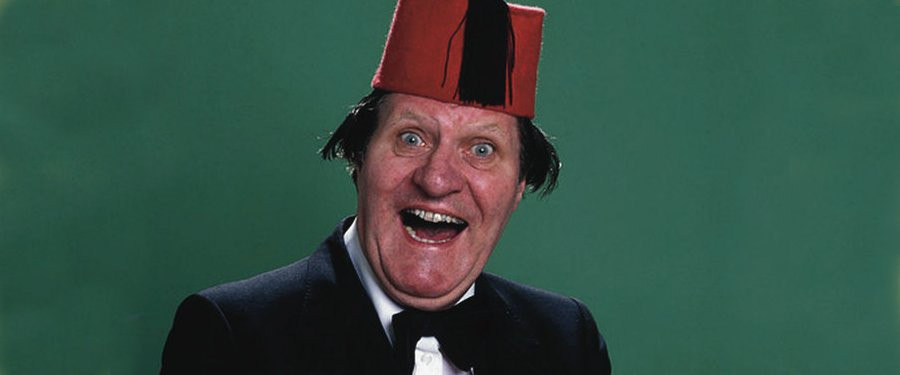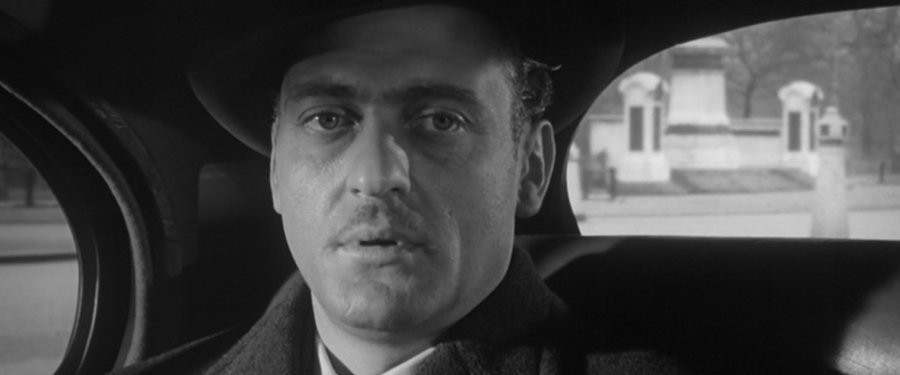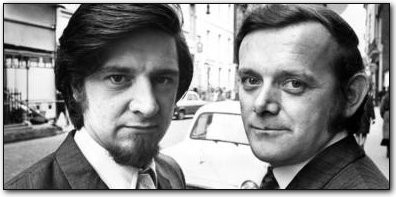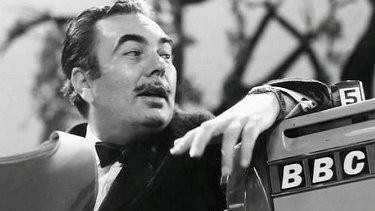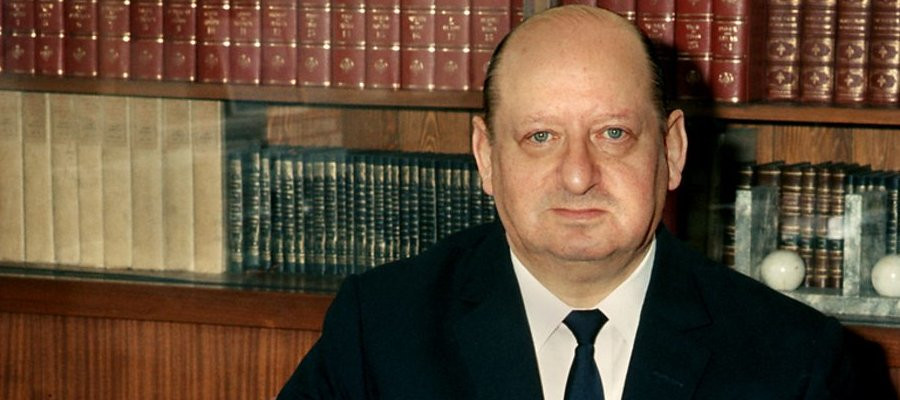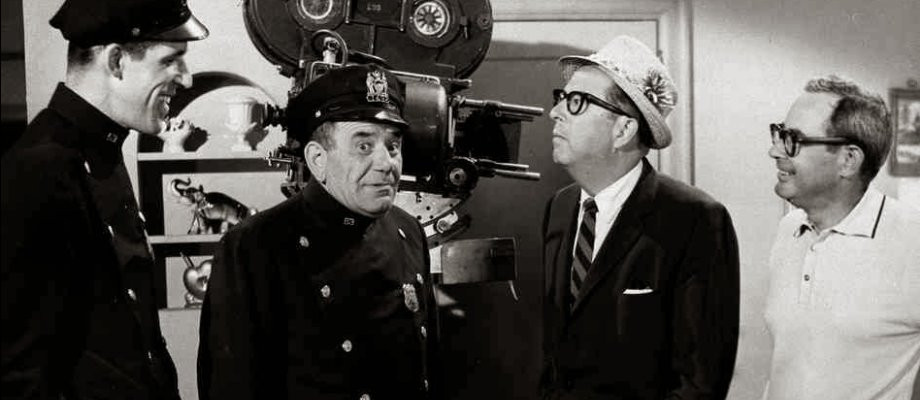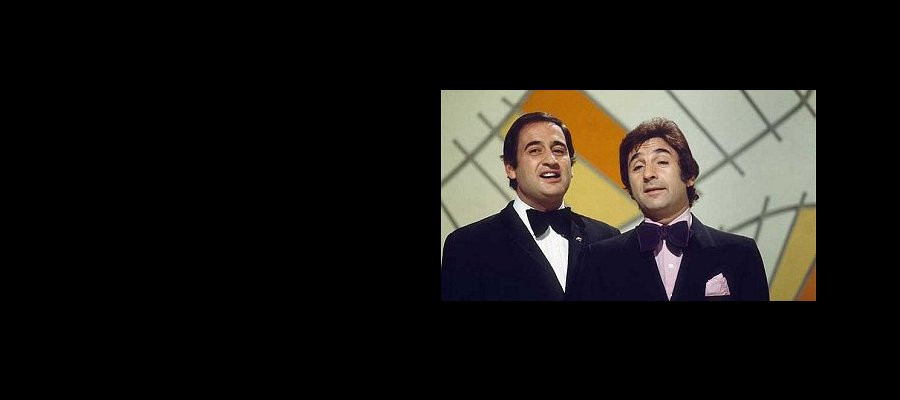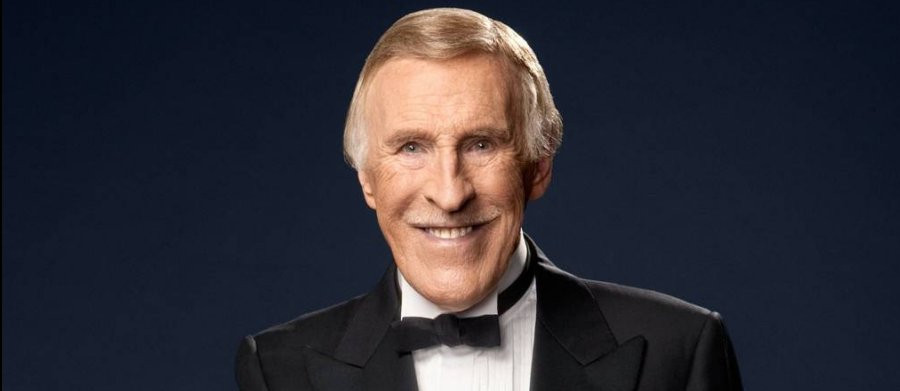
Bruce Forsyth
Biography by Brian Slade
‘You can’t beat a bit of Bruce Forsyth on a Saturday night.’ Those were the words spoken by Peter Cook’s foul-mouthed alter ego Clive in an exchange with Dudley Moore’s Derek, but the term ‘many a true word spoken in jest’ has never seemed so apt. For decades, Forsyth held our attention on television to the point where you suspected if you tried to find a definition for the phrase ‘prime time’ it would be listed as just that – Bruce Forsyth.
Born in 1928 as Bruce Forsyth-Johnson, much of his school years were focussed on dancing rather than studying. Tap dancing was his first love, something which he demonstrated throughout his career. When the time came for his first appearance on television in 1939, he told host Jasmine Bligh that he wanted to be ‘a famous dancer, like Fred Astaire and buy my mother a fur coat.’ Like many of his peers, Forsyth’s mother would be a supportive driving force in his formative years.
Forsyth’s mother, along with some of her friends, formed a variety club to showcase performers in wartime charity shows. It was in these shows that Forsyth realised that while primarily there as a song and dance man, he could also raise laughs from his audience. As he honed his talents and obsessed on his dancing as well as moving on to learning the piano, it became clear to his parents that Bruce would not be an academic success and he left school at 14 years old to pursue his show business passions.
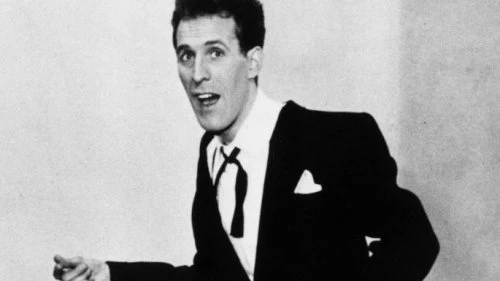
Within the audience at one of the charity shows was a variety agent who liked what he saw in young Bruce. He offered him a role in a show a few months down the road, headlined by The Great Marzo. Bruce himself carried a stage name of Boy Bruce, The Mighty Atom. The show struggled financially to the point where Forsyth’s parents were asked to contribute some funding to ensure it went ahead, but such was their support that they sacrificed in order to find the necessary money. Despite the financial support, the show was a disaster and Forsyth himself would describe his routine as ‘ghastly,’ but it did nothing to scupper his enthusiasm as he spent the wartime years touring variety theatres.
After returning from a spell in the Armed Forces, Forsyth spent a long time employed at the famous Windmill theatre, where he was in charge of arranging some of the song and dance routines. He subsequently spent many years touring variety theatres, with summer seasons and pantos the bread and butter of his career. But in September 1958 his career hit a pivotal moment. He was booked by the director of Sunday Night at the London Palladium director Brian Tesler for a new television programme featuring up and coming singers, dancers and comedy performers, entitled New Look.
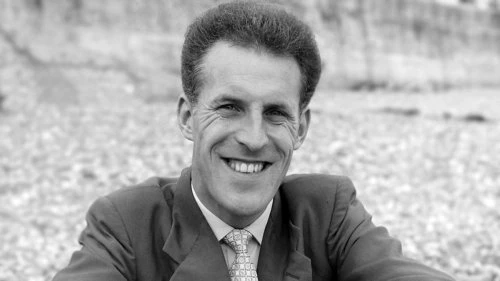
It was during rehearsals for this show that Tesler questioned whether Forsyth might like to take a spot on Sunday Night at the London Palladium should one become available. It did and it went well, to the extent that when host Tommy Trinder departed, theatrical agent Billy Marsh suggested Bruce as his replacement. As a child, Forsyth and his mother had regularly dreamed of him reaching the Palladium stage, and it remained a personal heartbreak that his mum had passed away just a year before he traded plying his trade in front of 50 people at the Eastbourne Hippodrome to hosting the most popular variety show on television.
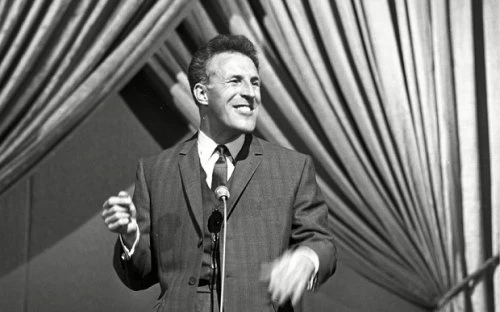
Hosting Sunday Night at the London Palladium played into all of Forsyth’s strengths. His many talents meant that he could appreciate every act that graced the stage, and with the ‘Beat the Clock’ segment, which saw couples complete challenges against the clock, we would see signs of the Bruce that British TV would know for the next six decades. Here he already began picking up catchphrases such as ‘I’m in charge’ and ‘Can you come back next week?’ His seemingly effortless rapport with the contestants along with his ability to adapt in an instant to anything unscripted would serve him well throughout his career.
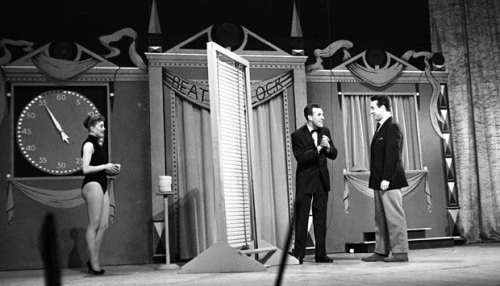
Perhaps the highlight of his Palladium shows was one particular evening when a strike meant that the line-up of performers were absent and Bruce had the evening to himself, bar the ‘assistance’ of Norman Wisdom. It’s an evening that has been much revered, including a memorable wallpapering sketch – silent comedy at its best as foreman Bruce and hapless assistant Norman proceed to make a literal mess of wallpapering a room.
Various stage roles would follow in the 1960s, as would some diverse screen roles including a show for ABC in the late 1960s, simply titled The Bruce Forsyth Show. Although little remembered now, the programme was actually the source for Bruce’s most remembered catchphrase, ‘Nice to see you…to see you, nice.’
If hosting Sunday Night at the London Palladium had sent Bruce to the top of the bill, by the 1970s, television itself had moved on, and viewing figures were now soaring in comparison to those in the 1950s. So when Forsyth struck gold again in 1971 it would send him on an upward curve that never truly wavered again. He met Bill Cotton in spring of that year, intending to further previous discussions about the possibility of hosting a chat show which would allow him to do song, dance and comedy routines with his guests. Instead, Cotton ran a tape of a Dutch show called One Out of Eight, in which members of the public would try to imitate the skilled labours of professionals. It was the seeds of The Generation Game, and within weeks of its pilot episode, the programme doubled its viewing figures from seven to fourteen million viewers.
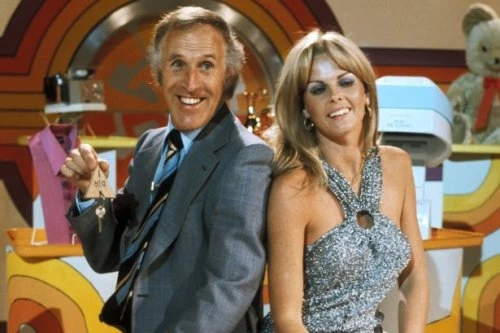
The Generation Game never looked back. Forsyth wrote the theme song, proposed the addition of a scripted play in which he would have fun playing a part alongside the contestants and along with his shadowed Rodin’s Thinker pose when he arrived on stage, he managed to create a new catchphrase with ‘Didn’t they do well?’
In 1977, with The Generation Game at the peak of its powers, Bruce Forsyth dropped a bombshell on the BBC – he was leaving to star in a stage musical, The Travelling Music Show. Sadly, the production failed but Bruce was very swiftly back on television. He was back doing what he enjoyed the most, singing and dancing on Bruce Forsyth’s Big Night. He had a host of his peers and heroes to perform with, but the press slated it and audience ratings weren’t enough to save it from cancellation.
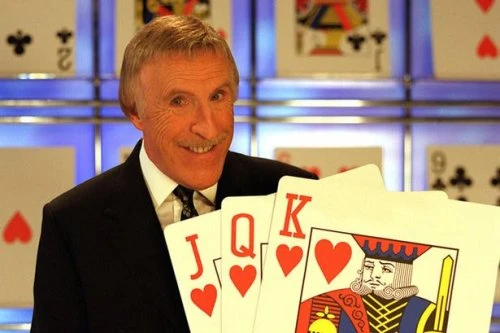
After Big Night’scancellation, Bruce did what he did throughout his career, bouncing back in style with Play Your Cards Right. The simplest of formats in which people had to predict higher or lower for five giant playing cards in a row once again brought the masses to the viewing figures, and the programme ran for eight years until 1987. So popular was both it and Bruce that it made a five-year return in 1994 (he had a second spell at the helm of The Generation Gamefrom 1990-94), and then one final brief resurfacing in 2002.
Game shows now seemed to be Forsyth’s lot, and during Play Your Cards Right’s second run he juggled the programme with seven years as host of The Price Is Right, a British version of the US game show originally made famous in the UK by Leslie Crowther in the 1980s.
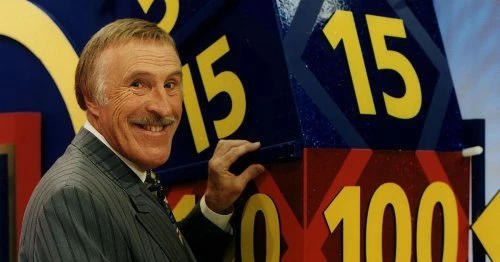
By the 2000s, and with Bruce finally moving on from out and out gameshows, he was becoming somewhat of a cult figure. Spots on Have I Got News For You as guest host, and The Rob Brydon Showkept him relevant and he even became the oldest performer to appear on stage at the Glastonbury Festival, but it was the arrival of Strictly Come Dancing in 2004 that perhaps found Forsyth one final spiritual home. His love of dancing and his unrivalled skills as host of a show in which contestants competed for approval came together for the ultimate Indian summer of his career.
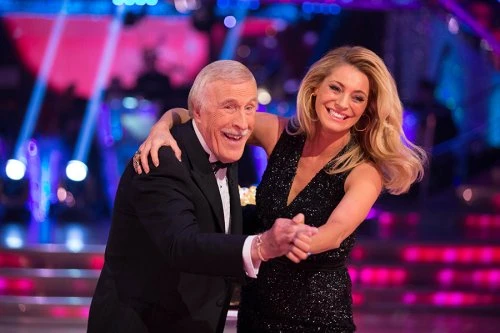
Reinventing the format of the old Come Dancing programme that had run from the 1950s through to the 1990s, celebrities would compete alongside professional dance partners before judges, and Bruce would co-host the programme – and he was in his element. For eleven series he breathed new life into his well-known catchphrases and his skills as an adlibbing host remained unchecked. When ill-health forced him to hand over the reins, Strictly Come Dancing was one of the jewels in the BBC’s crown, a popularity that he worked hard to achieve.
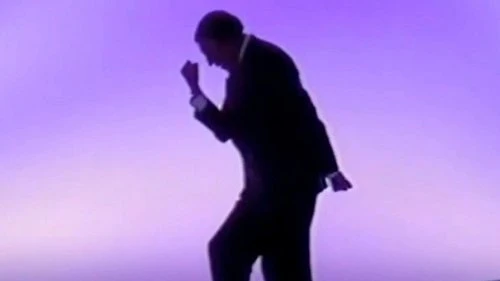
Health gradually got the better of Bruce Forsyth, who disappeared from public appearances in 2015, passing away at the age of 89 two years later. By the time of his retirement he had become Sir Bruce Forsyth, had entertained television audiences across seven decades and rarely missed a step throughout. It was an astonishing career highly unlikely to ever be repeated, and it truly was nice to see him.
About Brian Slade
Born and raised in Dorset, Brian Slade turned his back on a twenty-five-year career in IT in order to satisfy his writing passions. After success with magazine articles and smaller biographical pieces, he published his first full-length work, `Simon Cadell: The Authorised Biography'.
Brian
is a devoted fan of the comedy stars of yesteryear, citing Eric Morecambe, Ken
Dodd, Harpo Marx and Dudley Moore amongst his personal favourites. He was drawn
to the story of Simon Cadell through not only `Hi-de-hi!' but also `Life
Without George', a programme he identified with having grown up in the Thatcher era.
Published on February 6th, 2020. Written by Brian Slade for Television Heaven.


